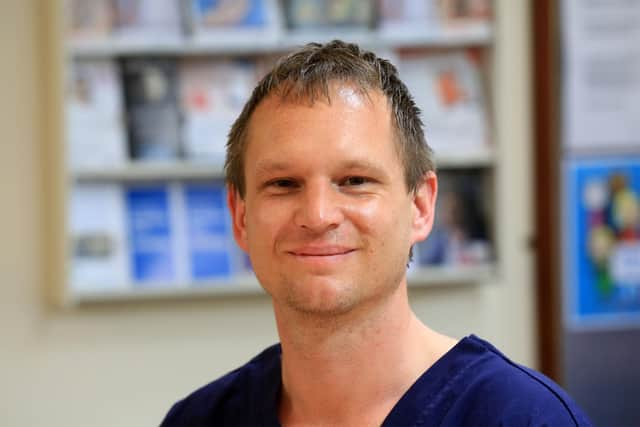'Covid hasn’t gone away, but for now, we can live with it in a different way' - Dr Ben Allen
and live on Freeview channel 276
There are two main ways the Covid vaccines help. Firstly they reduce your chance of getting Covid (and therefore passing it on). Secondly it reduces your risk of being hospitalised or dying if you do get it. So if you are someone who is already high risk of getting unwell with Covid, the vaccine is especially important.
Two vaccines doses gave good protection from early variants of Covid. Omicron, the current variant of Covid, needs a third “booster” dose to give good protection. It appears the protection does reduce over time. Which is why the NHS is planning second spring booster for those who are at the highest risk: those over 75, in a care home or with weakened immune systems. They can not be booked with your GP, the NHS will contact people who are eligible. Be prepared that guidance about Covid and vaccines will continue to change over time as we observe and learn from both.
Advertisement
Hide AdAdvertisement
Hide AdSome patients have questioned the vaccine’s effectiveness. They have heard stories of both unvaccinated people who have never had Covid and vaccinated people who had it and became unwell. Vaccination reduces your risk of getting unwell with Covid in a similar way that seatbelts reduce your risk of death in a car accident. Some people survive a car crash without a seatbelt and other people die whilst wearing a seat belt. Does that mean seatbelts are useless? In both cases it is about decreasing risk. We KNOW vaccines reduce your risks because we look at 1000s of stories put together. The safety data is also very clear, based on enormous numbers worldwide.


What are the Covid rates now? Estimates are that around one in 20 people in England had it last week, which is around the highest yet. Hospitals are not overwhelmed by this due to vaccination and natural immunity – people with Covid aren’t getting so ill. However, these levels of Covid cause significant disruption to many organisations, including NHS services.
Nationally things are certainly looking brighter overall. This new phase has been called ‘living with Covid’. This is not the same as ‘pretending we’re living without Covid’. When we ‘live with’ something, we learn to manage it and keep it at bay instead of being controlled by it.
It is an important time to rebuild friendships and community face to face. Some may need your help to do this if they have become very isolated and fearful. We can still be mindful of reducing infections spreading. The warmer weather means we can meet outdoors or ventilate. Face masks have a role when they’re don’t interfere too much. We may want to limit very large indoor gatherings. It is a balance.
Advertisement
Hide AdAdvertisement
Hide AdIf you have not yet been vaccinated, or boosted, I would strongly encourage you to do so. This is especially true if you are unvaccinated and vulnerable, for example if you are over 60 years old, or even more so over 70. You can book on NHS website or by calling 119.
Let’s allow spring to invite us to rediscover some of beauty in life that's been out of reach for too long. Covid hasn’t gone away, but for now, we can live with it in a different way. With care, we can enrich our friendships, connections and communities again.